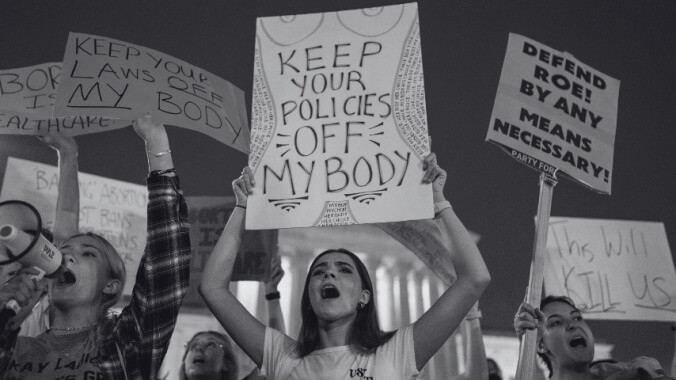As Expected, Minors Are Among Those Most Impacted by Anti-Abortion Laws
“Without access to abortion, these girls have lost the ability to control their lives and their futures,” one researcher said.
Photo: Getty Images AbortionLatestPolitics
In the aftermath of Dobbs v. Jackson Women’s Health, advocates warned that minors, whose ability to travel across state lines or buy abortion pills online is already constrained, would be among those most impacted by state abortion bans. A new study published in JAMA Pediatrics this week found that two-thirds of girls ages 13 to 17 now live in states that ban or severely restrict their abortion access. Specifically, the study reported that 66% of teen girls in this age range live in states with total bans, bans with severe gestational limits (between six and 22 weeks), and parental involvement requirements for them to access abortion.
“Minors are often targeted by restrictive policies and less able to use routes to abortion care common for adults—traveling to another state or using telehealth—leaving them disproportionately impacted,” Laura Lindberg, a professor at the Rutgers School of Public Health and author of the study, said in a statement. “Without access to abortion, these girls have lost the ability to control their lives and their futures.”
As of December, when researchers completed their data collection, 12 states enforce total abortion bans while 10 have severe gestational limits, including abortion bans as early as six weeks, before many people know they’re pregnant. All 10 of those states require parental involvement for a minor to access abortion; of all the states and Washington D.C. that still protect abortion rights, about half still enforce some parental involvement requirements.
-

-

-

-

-

-

-

-

-

-

-

-

-

-

-

-

-

-

-

-

-

-

-

-

-

-

-

-

-

-

-

-

-

-

-

-

-

-

-

-








































